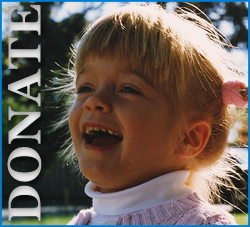Abeona Therapeutics Reports Top-Line Data from Phase 1/2 Gene Therapy Trial in MPS IIIA
Abeona Therapeutics Reports Top-Line Data from Phase 1/2 Gene Therapy Trial in MPS IIIA
• ABO-102 results presented at WORLDSymposium for Lysosomal Diseases show significant time- and dose-dependent reduction of underlying disease pathology, including decreased CSF and urine GAGs (HS fragments) and diminished liver volumes
• Evidence of cognitive benefit at six months post treatment in Cohort 2 and at one year in Cohort 1
• Company receives FDA allowance to lower enrollment age to six months
• Company to host investor conference call Friday, February 9th at 9:00 am ET; dial in 877-407-9210 (toll free domestic) or 201-689-8049 (international)
NEW YORK and CLEVELAND, Feb. 08, 2018 (GLOBE NEWSWIRE) — Abeona Therapeutics Inc. (NASDAQ:ABEO), a leading clinical-stage biopharmaceutical company focused on developing novel cell and gene therapies for life-threatening rare genetic diseases, today announced updated clinical data from the ongoing Phase 1/2 trial for ABO-102 (AAV-SGSH), the company’s investigational gene therapy for the treatment of Sanfilippo syndrome Type A (MPS IIIA), a rare autosomal-recessive lysosomal storage disease. The results demonstrate robust and durable clinical effects achieved throughout various timepoints post-administration. To date, 10 patients have been dosed with a single intravenous injection of ABO-102. Results were reported today during the WORLDSymposium for Lysosomal Diseases being held this week in San Diego, CA.
“MPS IIIA is a profound and deadly lysosomal storage disease with no approved treatments available. The encouraging clinical data reported today provide strong additional support for a whole-body treatment approach involving intravenous delivery of an AAV to drive expression of the SGSH enzyme in all organs of the body, with an emphasis on expression in the central nervous system,” stated Kevin M. Flanigan, M.D., principal investigator of the trial, director of the Center for Gene Therapy at Nationwide Children’s Hospital and professor of pediatrics and neurology at The Ohio State University College of Medicine. “We are especially pleased to see sustained decreases in CSF heparan sulfate in all subjects post-injection, along with positive signals of neurocognitive activity in Cohorts 1 and 2.”
In the trial, subjects received a single intravenous injection of ABO-102 to facilitate systemic delivery of a corrective copy of the gene associated with onset and progression of MPS IIIA. Subjects were evaluated at multiple time points post-injection for safety assessments and signals of biopotency and clinical activity.
“Results thus far from the ongoing ABO-102 clinical trial support the tolerability of a systemically delivered AAV approach for the treatment of lysosomal storage diseases,” stated Timothy J. Miller, Ph.D., president and CEO of Abeona Therapeutics. “The large reductions in heparan sulfate in both CSF and urine, significant organ changes and demonstration of neurocognitive benefits represent important findings that support our path to regulatory guidance later this year. Importantly, the FDA recently allowed the lowering of the enrollment age to include subjects as young as 6 months, supporting the clinical paradigm of treating subjects earlier in their disease manifestation.”
Select updated data from the presentation are highlighted below, and the full presentation is available here: https://abeonatherapeutics.com/investors/
Biopotency Assessments: ABO-102 continues to demonstrate significant dose-dependent and time-dependent responses in measured biomarkers, including rapid and sustained reductions of heparan sulfate (HS), the sugar molecule that is the hallmark of MPS IIIA, in the cerebral spinal fluid (CSF) and urine.
CSF heparan sulfate:
• Day 180 assessment
o Cohort 2 (n=3) demonstrated a reduction of 57.1% +/- 7.14%
• Day 30 assessment
o Cohort 3 (n=3) demonstrated a reduction of 64.4% +/- 2.2%
Urine heparan sulfate (HS):
• Day 30 assessment
o Cohort 3 (n=3) demonstrated a reduction of 91.9% +/-1.5%
o Cohort 2 (n=3) demonstrated a reduction of 54.0% +/- 18.0%
• Day 60 assessment
o Cohort 3 (n=4) demonstrated a reduction of 73.4% +/- 13.5%
o Cohort 2 (n=3) demonstrated a reduction of 65.2% +/- 5.5%
• Day 90 assessment
o Cohort 3 (n=1) demonstrated a reduction of 94.9 %
o Cohort 2 (n=3) demonstrated a reduction of 63.1%+/- 8.2%
• Day 180 assessment
o Cohort 2 (n=2) demonstrated a reduction of 55.0% +/- 5.0%
o Cohort 1 (n=2) demonstrated a reduction of 29.2% +/- 35.6%
Biophysical Assessments: A separate natural history study (Truxal et. al., 2016, Mol. Genet. Metab.) of MPS IIIA demonstrated that subjects showed an average 220% increase in liver volume at baseline. Result from the Phase 1/2 clinical trial for ABO-102 demonstrate durable biophysical reductions of disease burden including reductions in liver volume.
Cognitive Assessments: ABO-102 continues to show evidence of stabilization or improvement in cognitive function at six months in Cohort 2 and one year in Cohort 1.
• Two of the three treated patients from Cohort 2 showed evidence of improvement in the Leiter-R non-verbal IQ and stabilized Vineland (adaptive behavior) scales.
Safety Assessments: ABO-102 is well-tolerated in all subjects to date, with no drug-related serious adverse events (SAE) reported through over 3,100 cumulative days post-injection.
ABO-102 has been granted Rare Pediatric Disease Designation and Fast Track Designation in the U.S. and Orphan Product Designation in both the USA and the European Union.
Investor Conference Call Details: The Company will provide investors with an update on the reported data tomorrow, Friday, February 9th, at 09:00 am (Eastern). Interested parties are invited to participate in the call by dialing 877-407-9210 (toll free domestic) or 201-689-8049 (international). The webcast, as well as presentation materials, will be accessible by visiting: https://www.webcaster4.com/Webcast/Page/1818/24557.
About Abeona: Abeona Therapeutics Inc. is a clinical-stage biopharmaceutical company developing cell and gene therapies for life-threatening rare genetic diseases. Abeona’s lead programs include EB-101 (gene-corrected skin grafts) for recessive dystrophic epidermolysis bullosa (RDEB), ABO-102 (AAV-SGSH), an adeno-associated virus (AAV) based gene therapy for Sanfilippo syndrome type A (MPS IIIA) and ABO-101 (AAV-NAGLU), an adeno-associated virus (AAV) based gene therapy for Sanfilippo syndrome type B (MPS IIIB). Abeona is also developing ABO-201 (AAV-CLN3) gene therapy for juvenile Batten disease (JNCL), ABO-202 (AAV-CLN1) for treatment of infantile Batten disease (INCL), EB-201 for epidermolysis bullosa (EB), ABO-301 (AAV-FANCC) for Fanconi anemia (FA) disorder and ABO-302 using a novel CRISPR/Cas9-based gene editing approach to gene therapy for rare blood diseases. In addition, Abeona is developing a proprietary vector platform, AIM™, for next generation product candidates. For more information, visit www.abeonatherapeutics.com.


